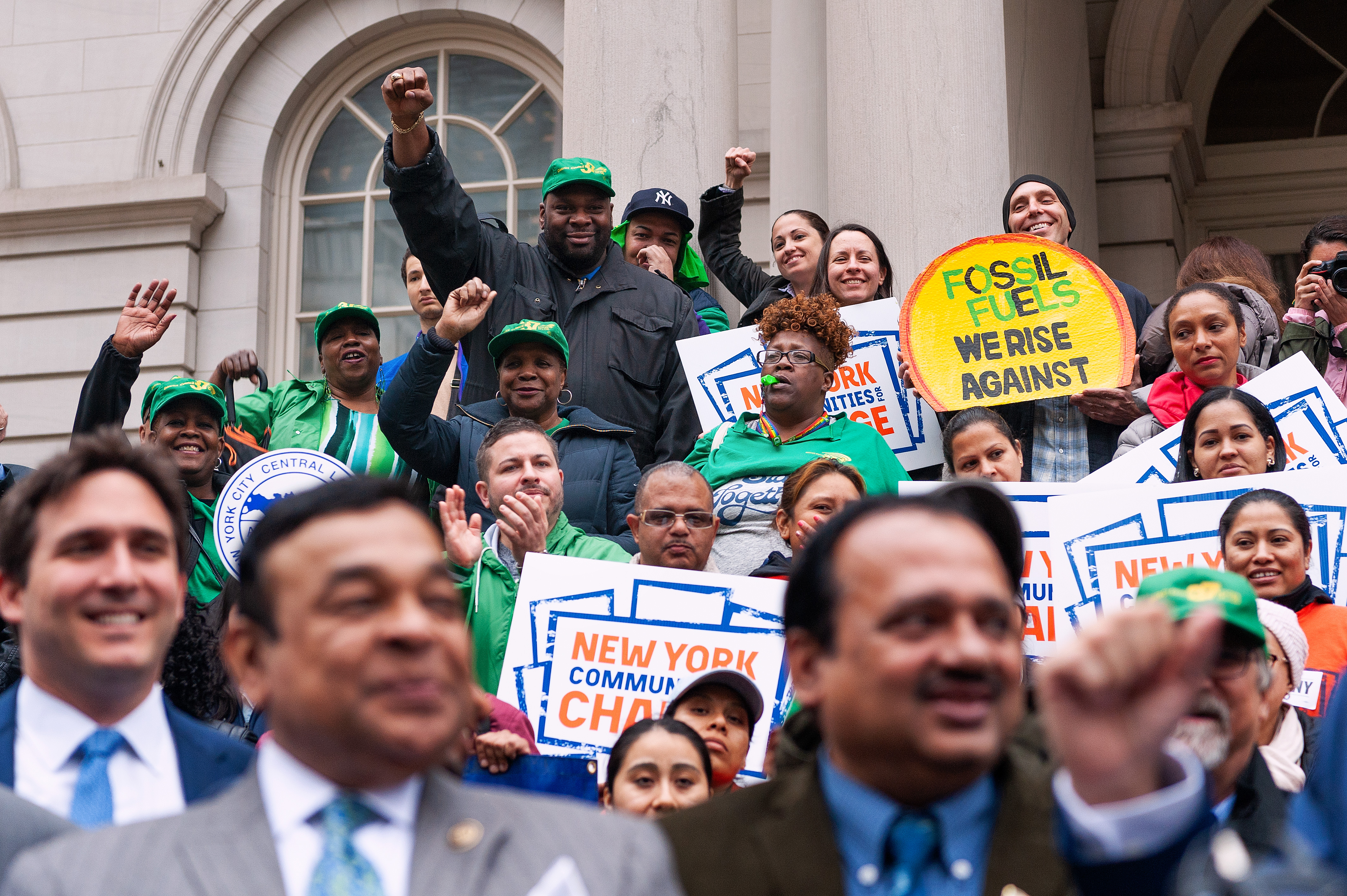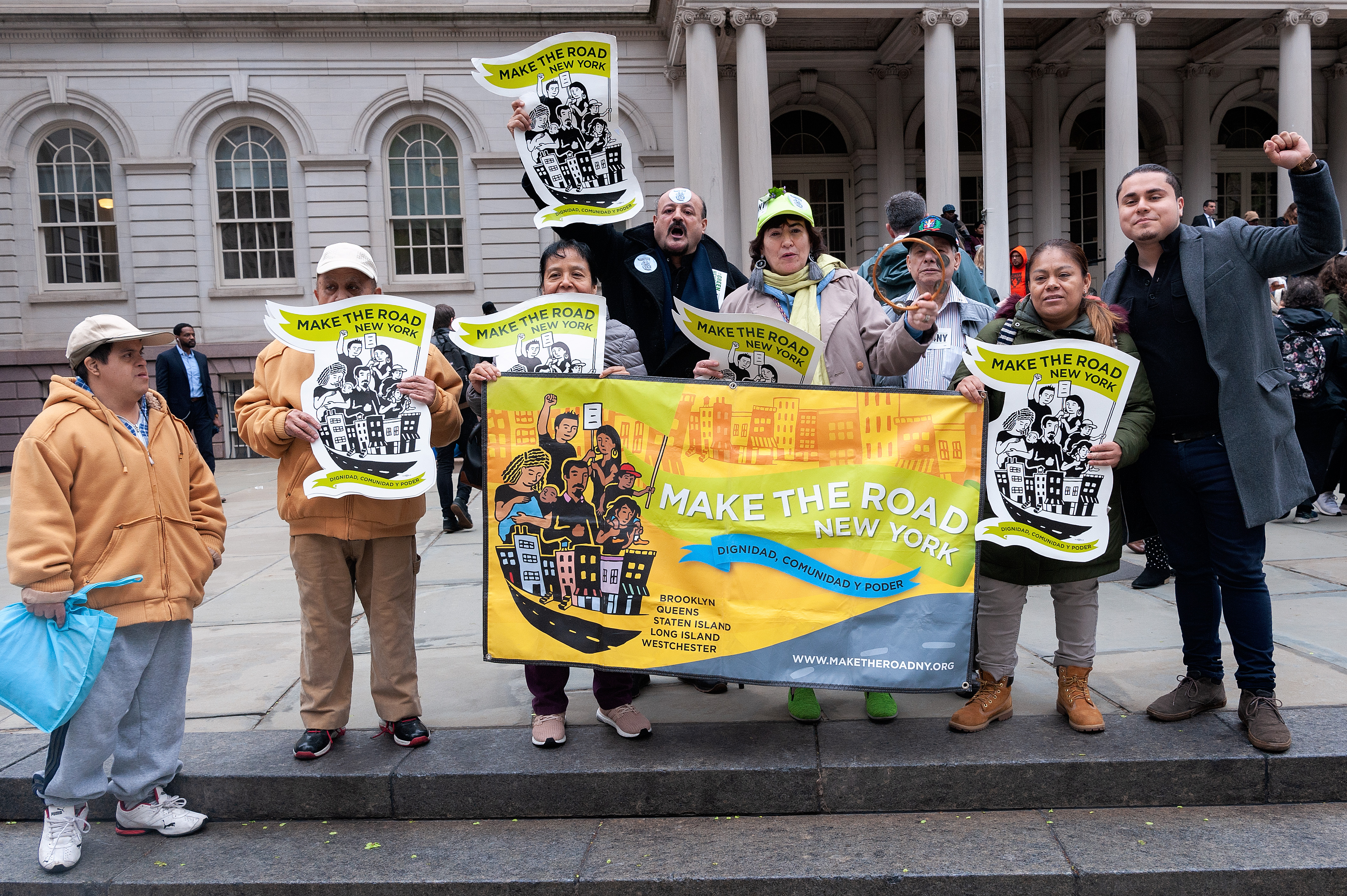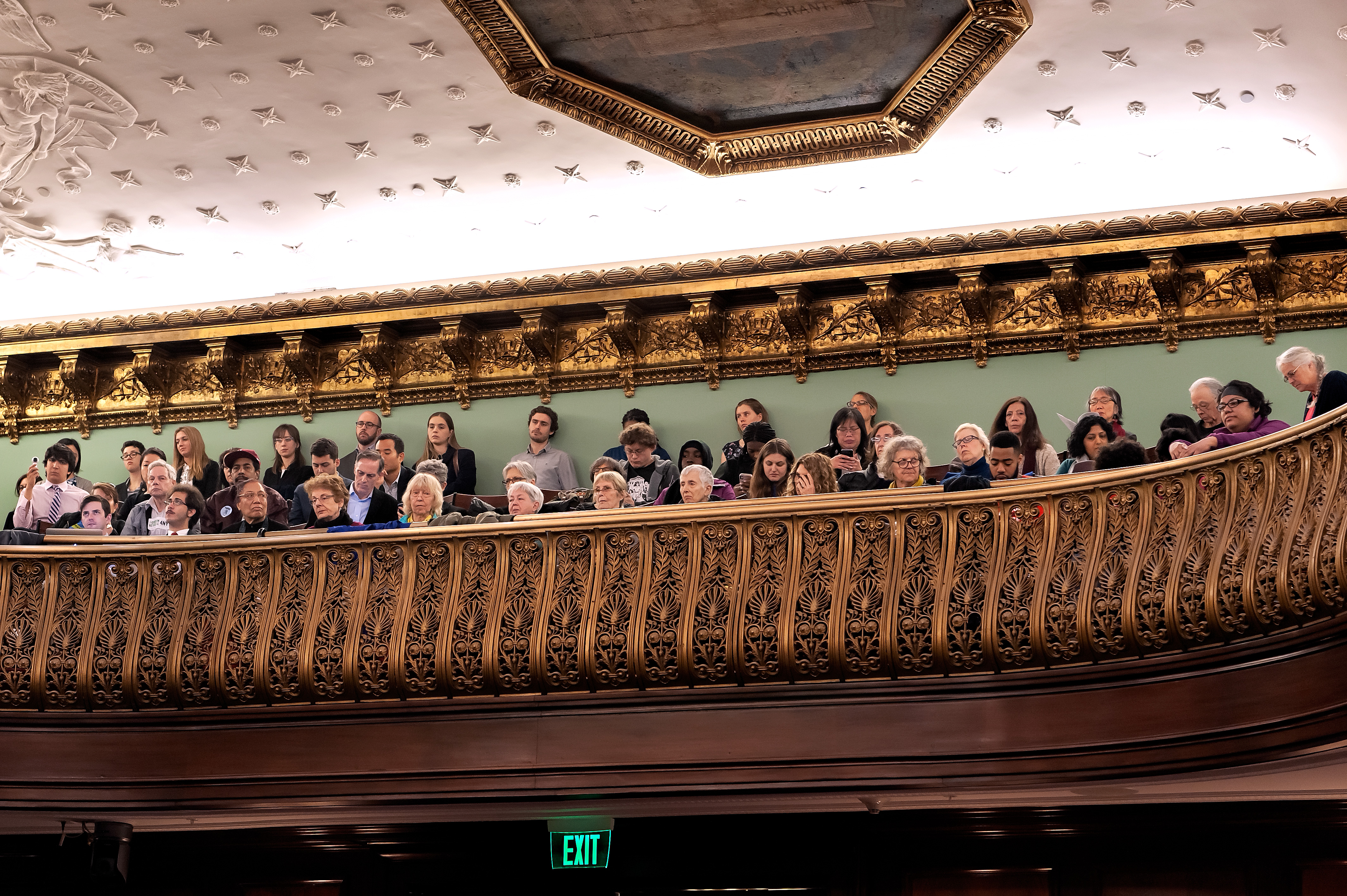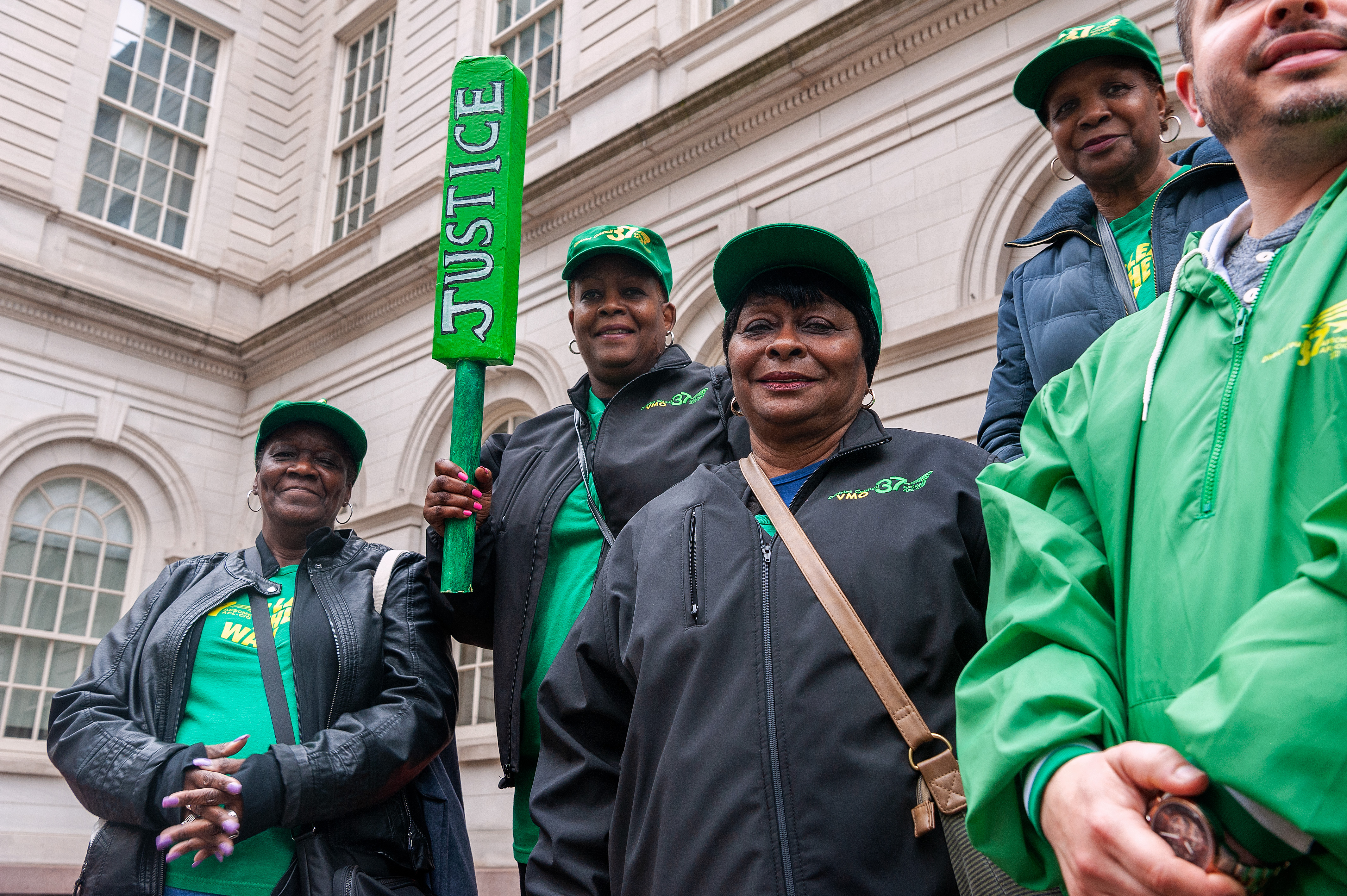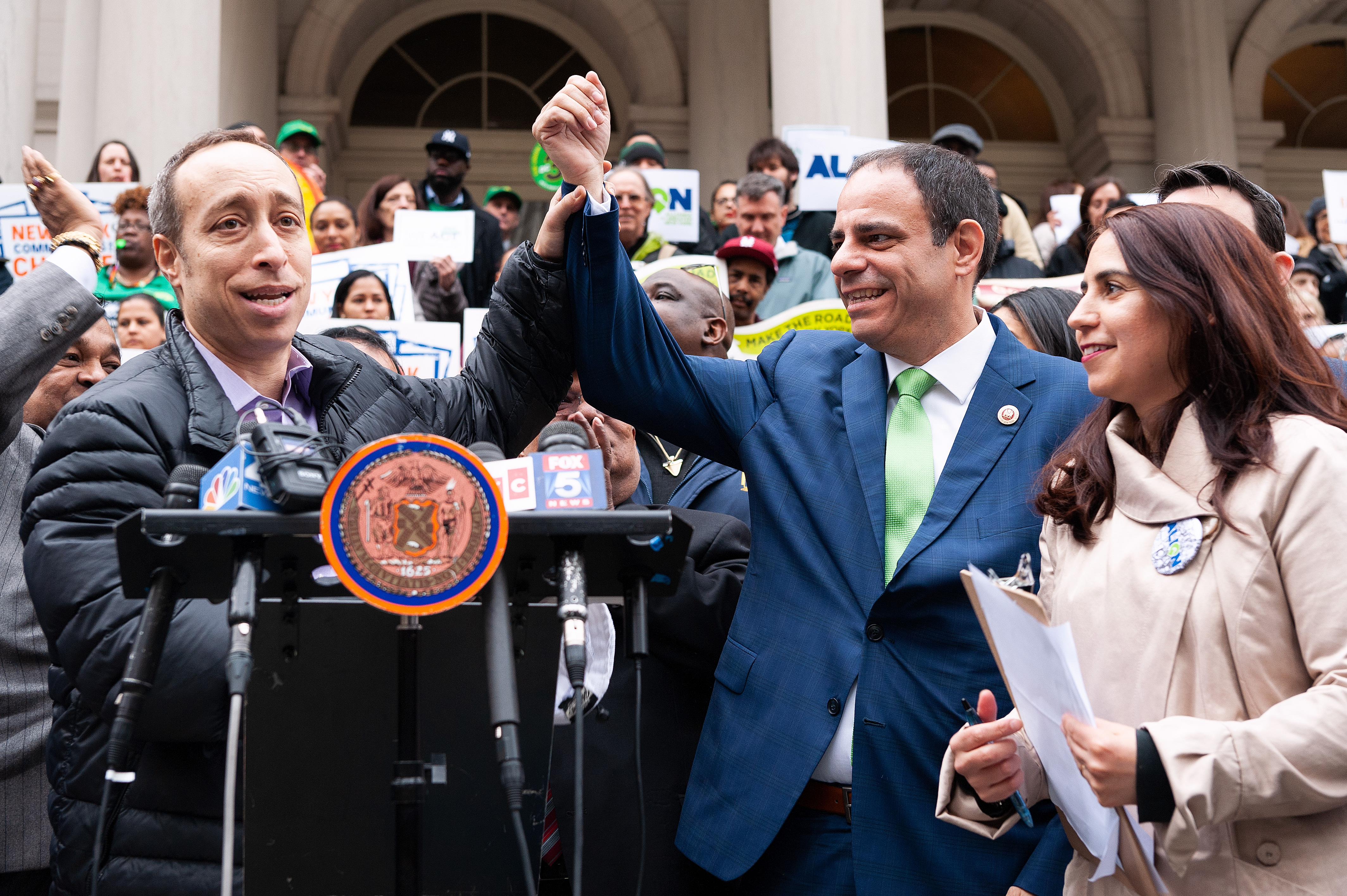Four days before Earth Day on April 22nd, the New York City Council made history passing the most substantial environmental protection legislation in the United States in a 45-2 vote.
The Climate Mobilization Act is a package of environmental protection bills and one of the most progressive actions to date aimed to fight the impact of climate change. It sets a precedent for climate action which many hope is going to be adopted by cities and towns in the nation.
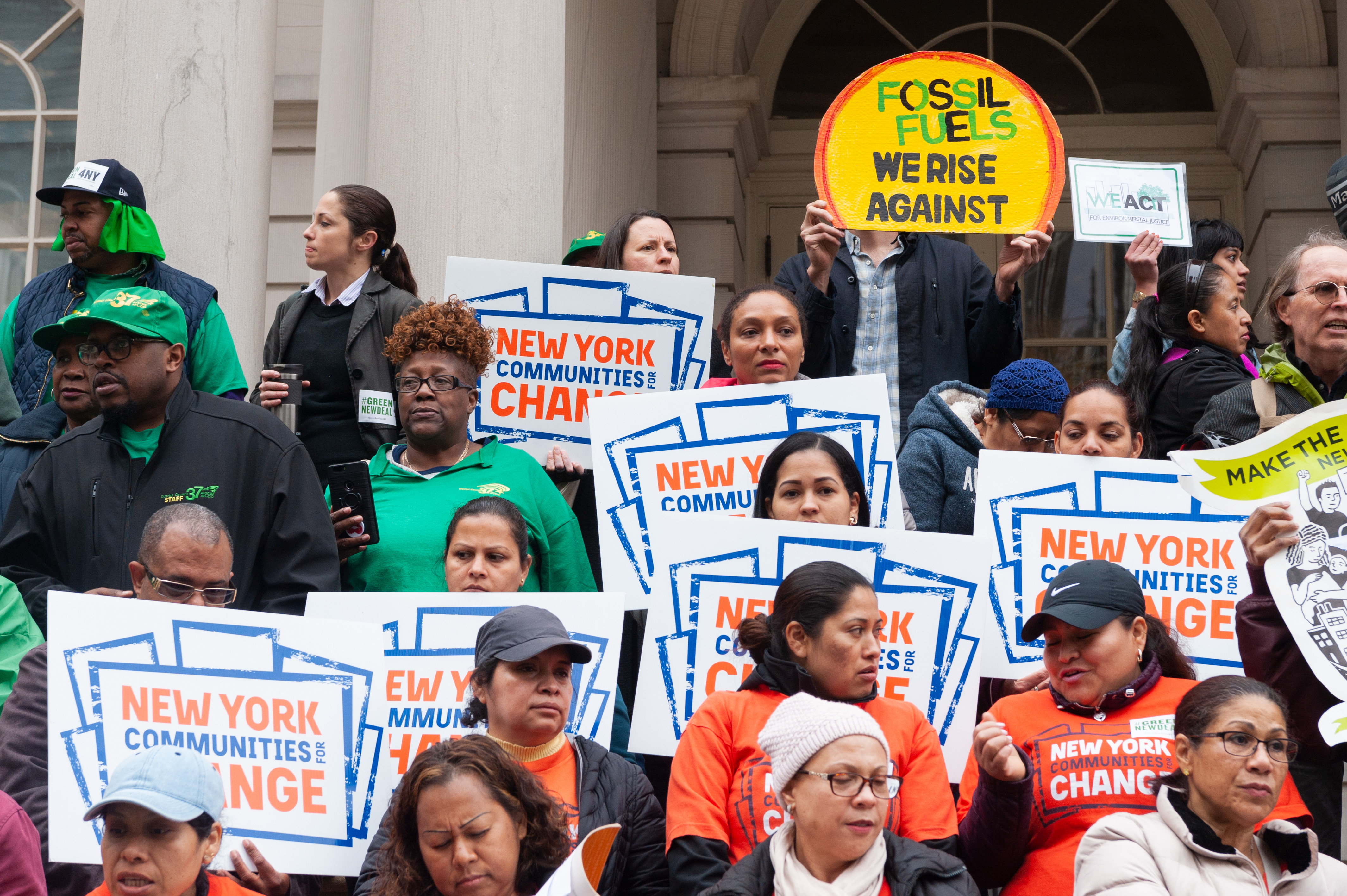
At the heart of the package is 1253, introduced by Councilmember Costa Constantinides (D-District 22) that requires buildings over 25,000 square feet to reduce their greenhouse gas emissions 40% by 2030 and 80% by 2050. Building pollution accounts for 70% of New York City’s greenhouse gas emissions; and while buildings over 25,000 square feet only make up 5% of all buildings in New York City, they contribute to almost half of the city’s pollution. The bill is the most extensive emission reduction policy in the world and when fully implemented in 2030 is going to be equivalent to taking 800,000 automobiles off the roads.
During a press conference that preceded the vote, Councilmember Constantinides stressed the urgency of the bill, “We know we have eleven years to take action and a lack of action would lead us down a path that would be a choice between ‘Mad Max’ and ‘The Hunger Games.’ We reject that! We are going to send a message to Washington that cities will lead.”
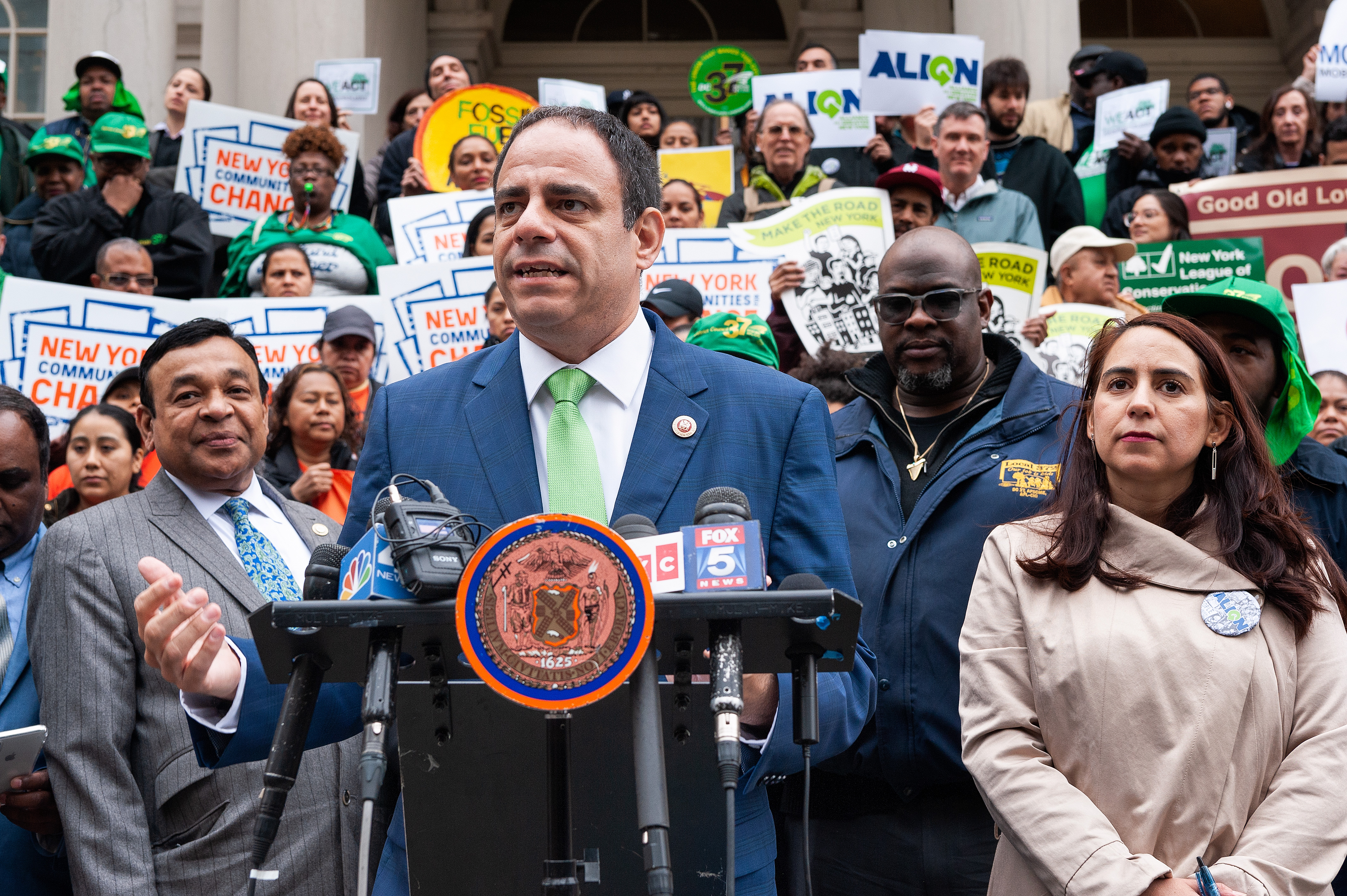
Parts of the green initiatives package would make it easier to build wind turbines, install green roofs and rooftop solar panels. A bill to charge five cents for paper bags, introduced by Councilmembers Margaret Chin (D-District 1) and Brad Lander (D-District 39) passed by a vote of 38 to 9. Along with the New York State ban on plastic bags, it is one of the most ambitious waste reduction initiatives the city has implemented.
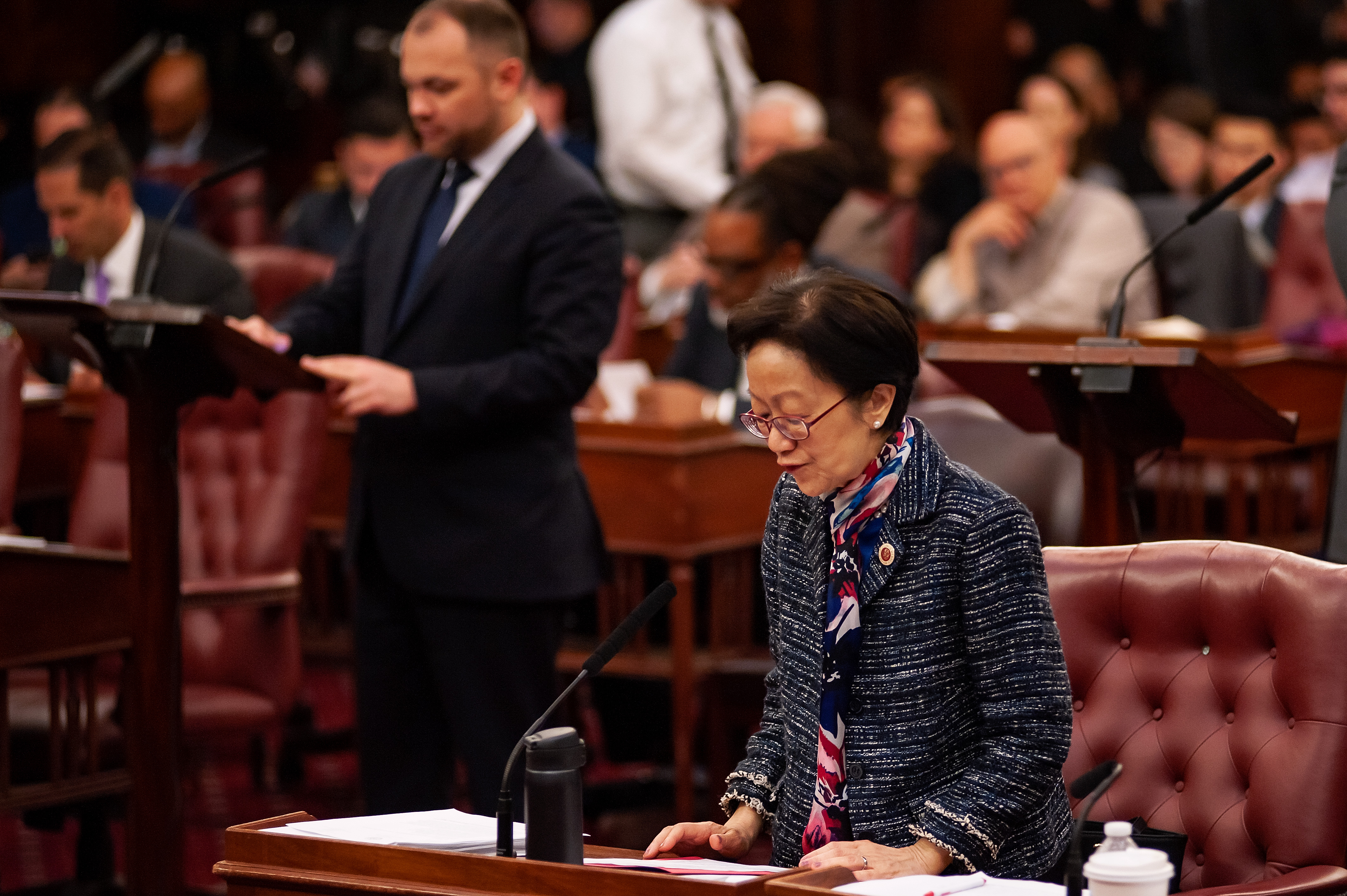
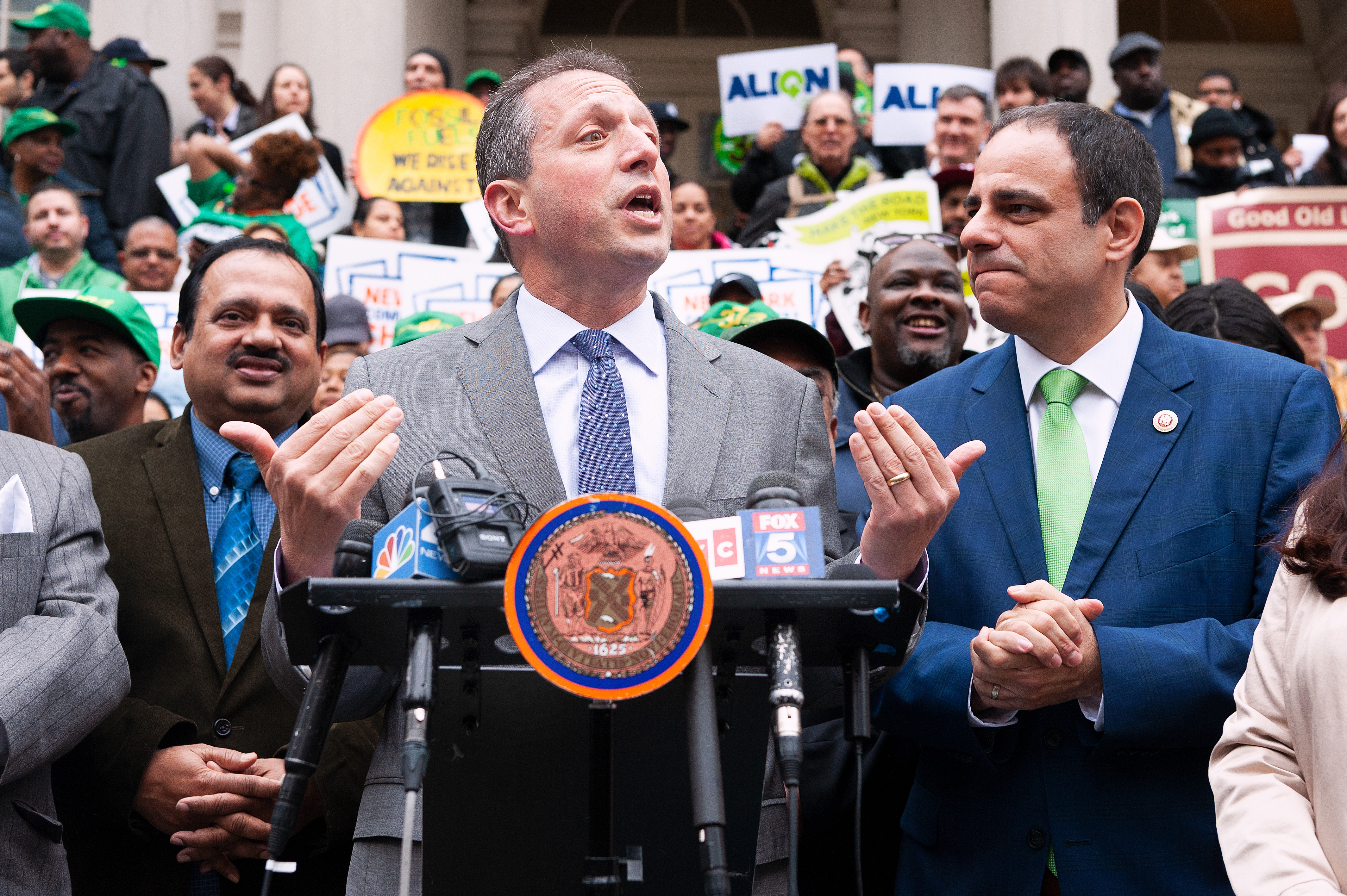
If climate change remains unchecked, New York City would be vulnerable to storm surges by 2050 and sea levels could rise by 6 feet swallowing parts of the city by 2100. Hurricane Sandy in October 2012 showed how destructive climate change is. Over 50 New Yorkers lost their lives, and the hurricane caused flooding of streets, buildings, and subway tunnels after the storm surges pushed the East River water over its banks. Bellevue Hospital Center, NYU Langone Medical Center and Coney Island Hospital, some of the major hospital centers in the city were evacuated because the surge had flooded the basements leading to a failure of back-up generators. Besides the financial impact, damages were an estimated $50 billion, the emotional, psychological, and physical toll the storm took on New Yorkers should not be disregarded.
Rachel Rivera from New York Communities for Change remembered the day Hurricane Sandy hit her home in Brooklyn, “I heard a cracking noise, and as soon as I took her (Marisol) out of her bed the roof caved in over her bed. We lost everything and still to this day she suffers from PTSD.” During rainstorms, Marisol has flashbacks, “It doesn’t matter how many years ago it was, no matter what the age, for me I can’t even be outside when it’s raining, I start shaking, and I can’t do anything about it.” Mrs. Rivera’s five-year-old daughter Angelina suffers from respiratory seizures which cause her to stop breathing. Air pollution in New York City is the main contributing factor of respiratory illnesses which sends thousands of its residents to emergency rooms every year.
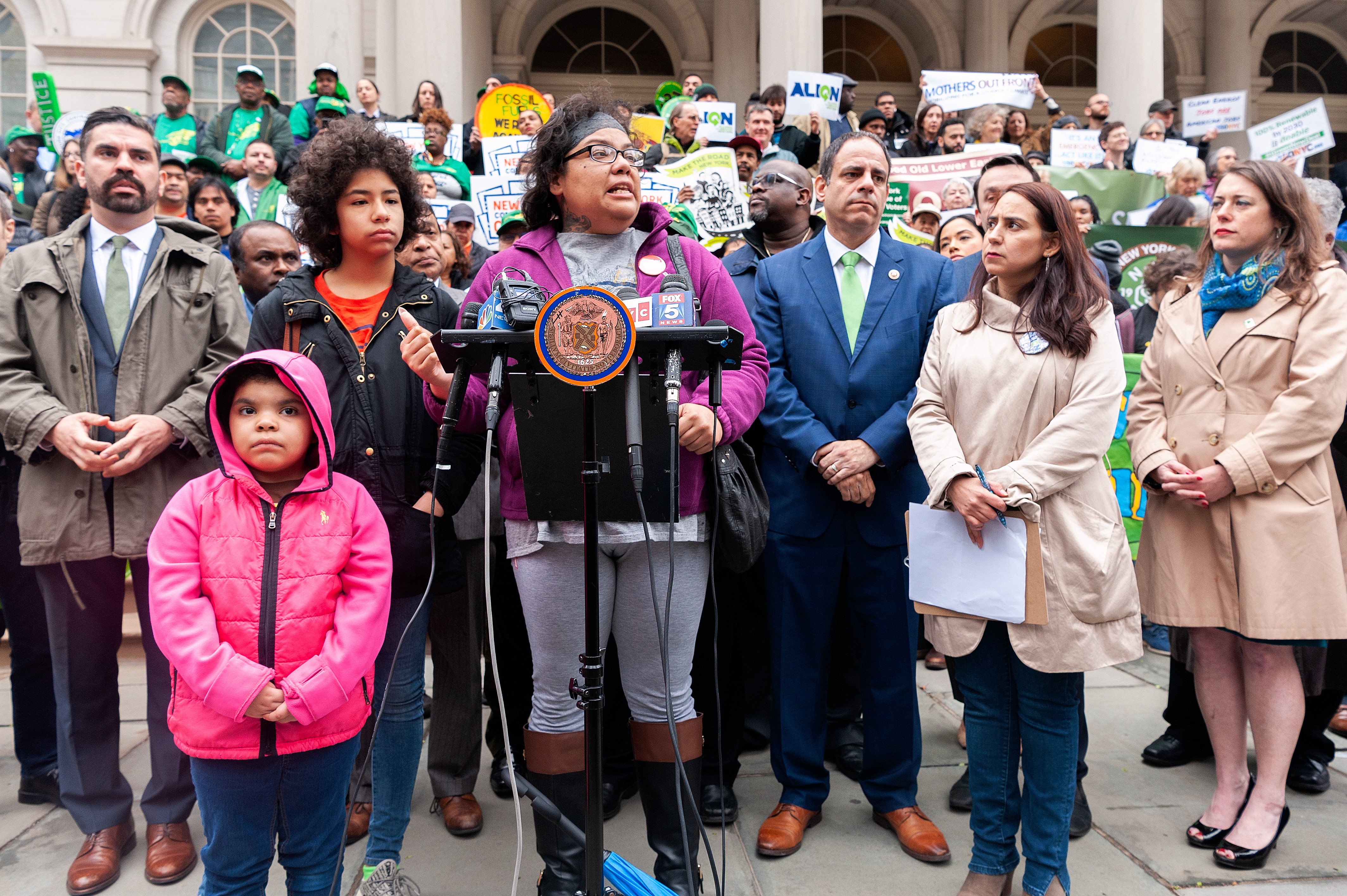
The climate change initiative is a five-year-long collaboration between community, labor, and environmental justice organizations who worked together with council members and elected officials. When Councilmember Karen Koslowitz (D-District 29) cast her vote in favor of the bill, she remarked, “I won’t be around in 2050, but my grandchildren will, so thank you.”
